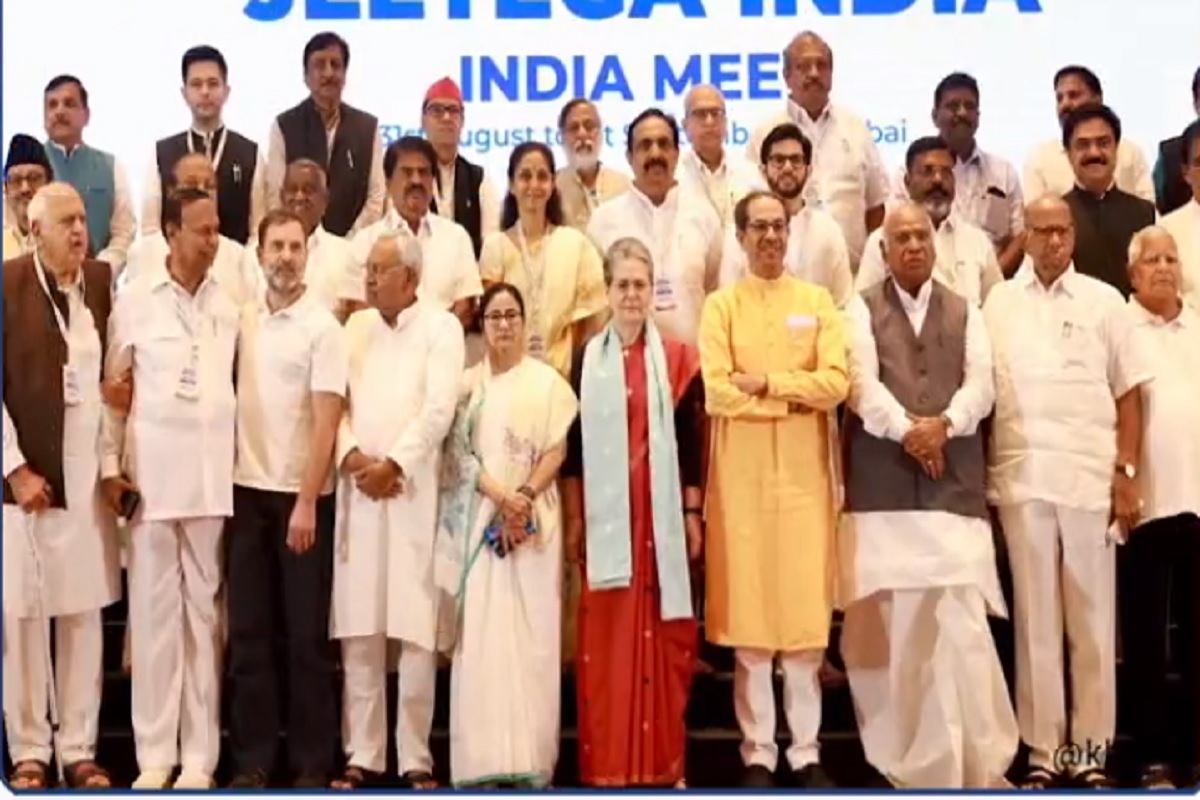INDIA, acronym for Indian National Democratic Inclusive Alliance, an Opposition alliance to counter the Narendra Modi-led BJP in the 2024 Lok Sabha elections, held their third formal meeting in Mumbai on Friday. During the meeting, Opposition leaders from at least 28 parties discussed their strategy and roadmap for the general elections.
The alliance partners adopted an election resolution to fight the next Lok Sabha polls together “as far as possible” and decided to fast track their seat sharing arrangements.
Advertisement
“We, the INDIA parties, hereby resolve to contest the forthcoming Lok Sabha elections together as far as possible. Seat-sharing arrangements in different states will be initiated immediately and concluded at the earliest in a collaborative spirit of give-and-take,” the resolution of the INDIA alliance said.
The Opposition’s INDIA bloc also formed a 14-member coordination committee and further sub-committees were also formed. They also decided to start election rallies of INDIA bloc leaders as soon as possible.
“This stage (INDIA alliance) represents 60 percent of India’s population. If all parties come together then it is impossible for BJP to win. The task is to come together in the most efficient way possible,” Congress leader Rahul Gandhi said at the INDIA alliance meeting.
Caste Census divided INDIA alliance
While the Opposition leaders gave an impression of a united house against the BJP-led NDA government at Centre, the issue of caste census uncovered their difference. According to media reports, it was West Bengal Chief Minister Mamata Banerjee who opposed the demand to include caste census pushed by Bihar Chief Minister Nitish Kumar, and RJD Supremo Lalu Yadav. Following the disagreement, a political resolution had to be dropped.
Earlier on July 19, a joint resolution to conduct caste census was adopted unanimously during the second meeting of the INDIA bloc in Bengaluru. A caste-based survey in already being conducted in Bihar under the Nitish Kumar government.
While the Opposition is trying to project unity, their ideological difference could create more such disagreements and it would be interesting to see how they decide on seat sharing, another key issue where building consensus is likely to be challenging task.









